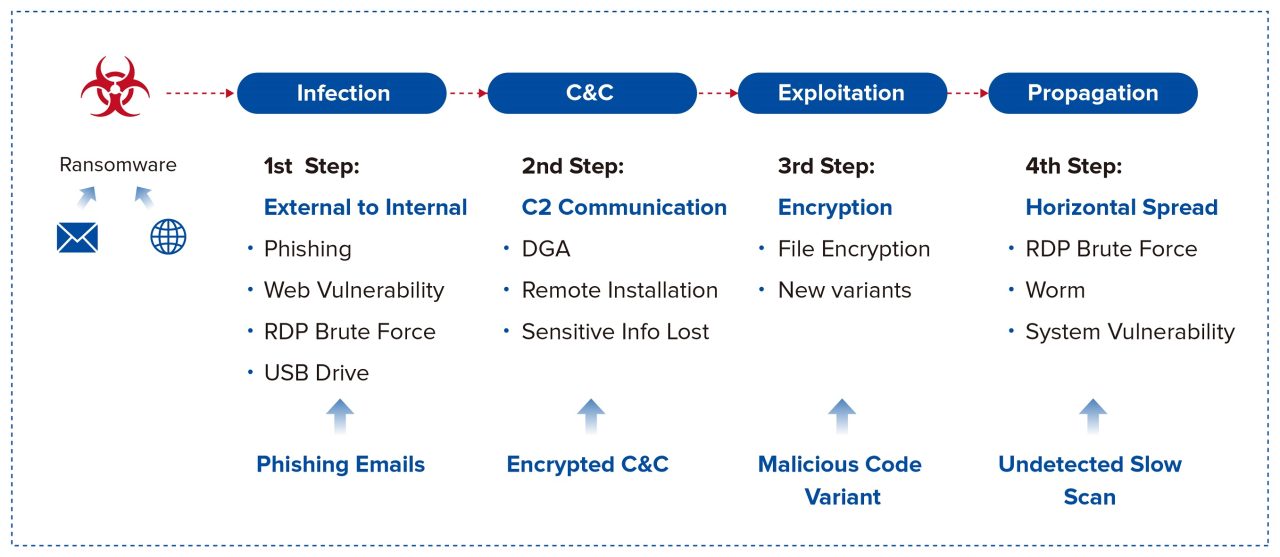How to Protect Your Company Website from Ransomware Attacks
The cost of ransomware attacks is measured in dollars, but the consequences are much worse.
Not only could your business suffer from lost revenue, brand and reputation damage, employee layoffs, and business closures, but if your company website was targeted, you could also be exposed to data breaches that expose your customers’ personal information to hackers.
Make sure you protect your company website with strong cybersecurity protections before you become the next victim of a ransomware attack.
1) Introduction to Ransomware
What is ransomware? How does it work? What are common types of attacks and who’s vulnerable?
Let’s answer these questions before we get into how you can protect your company website from a ransomware attack.
2) Defining Ransomware
In recent years, a type of malware called ransomware has been threatening businesses and consumers alike.
The virus encrypts your files and gives you a set amount of time before it deletes them forever – unless you pay a ransom, of course.
But what is ransomware, exactly? And how do you protect yourself against it?
3) What is the most common Ransomware attack vector?
A ransomware attack often starts with a phishing scam.
Hackers will send an email that looks like it’s from your bank, for example and tell you that you need to click on a link to verify your account information.
If you’re savvy enough not to click on such links, you could still end up as a victim if your employee accidentally clicks on one while at work.
As you can see the four steps in the graphic below;
- Infection
- Command & Control
- Exploitation
- Propagation
4) What happens after our company files are encrypted?
When your company’s files are encrypted, it can be tough to determine what you should do next. But one thing is for sure: your immediate priority is getting all of your employees on board with working around disruptions while keeping productivity at maximum levels.
The worst possible course of action is trying to go back in time and change passwords or other security measures that might have prevented a ransomware attack in the first place.
The reality of modern security threats means that companies need strong cybersecurity protections in place—and they need them now more than ever before.
5) Your business must be ready to remediate with website backups in the cloud
An organization must also have a strong cybersecurity plan in place that includes backups of its website in multiple locations.
Any business, large or small, should take precautions against ransomware attacks by maintaining strong cybersecurity policies that include regular backups of its website data.
Cloud-based backup systems are excellent at backing up data because they store it on servers all over the world.
If your company’s website is brought down by a cyberattack, you can restore it without incurring downtime because your backup is stored offsite.
On top of that, cloud-based solutions are relatively easy to set up and are generally inexpensive compared with other options for storing company data online.
6) All websites need to be protected with a strong firewall
The proliferation of various malicious code attacks, ranging from denial of service attacks that can shut down your website and hurt your business, all the way up to ransomware attacks that hold your company and its data hostage for money, has forced companies of all sizes to rethink their cybersecurity.
A strong firewall is a necessity not only for protecting your home computer but also for keeping malware and other threats out of your business’ network.
7) What are the odds of a company getting hit with ransomware?
It’s a common misconception that there’s a direct connection between an increase in company data and a decrease in chances of getting hit with ransomware.
In fact, there is no such relationship between these two events, so your company is just as likely to get hit with ransomware today as it was five years ago when you had only half as much data.
If anything, hackers are more active than ever before so don’t wait for an attack.
High revenue or recognizable brand, likely increases your chance of getting targeted by hackers
Cybersecurity insurance offers protection against many risks that are associated with an internet-based business, including protection against losses incurred due to cyberattacks.
However, whether you need cybersecurity insurance depends on your particular business risk profile.
One of these is premium levels—the higher your company’s revenue, brand value and reputation are, the more likely it is that hackers will target you.



